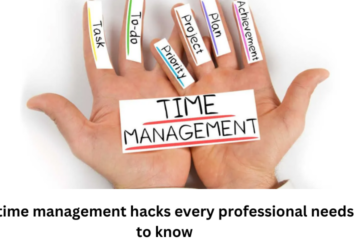Personal injury claims have come a long way since the days of relying solely on medical records and eyewitness accounts. Nowadays, social media is playing an increasingly important role in these cases, with evidence from Facebook, Twitter, and the like, helping to provide a more accurate picture of what really happened. The job of an Fort Myers Personal Injury Lawyer is to study the case of a personal injury and fight for justice. As per law, if someone faces injuries due to the other party’s negligence, then they can claim for compensation. And a personal injury lawyer helps people get that benefit. In this article, we’ll delve into the world of social media evidence and how it’s transforming the way personal injury claims are handled.
The Power of Social Media in Personal Injury Cases
You’ve probably heard the phrase “a picture is worth a thousand words”. Well, in personal injury cases, that’s truer than ever. With the prevalence of smartphones and social media, people are constantly documenting their lives – often in great detail. And this can be a goldmine for personal injury attorneys looking to build a case.
Social Media Evidence: A Double-Edged Sword
On one hand, social media evidence can be used to support a victim’s claim. For example, if someone is seriously injured in a car accident and posts pictures of their injuries on Instagram, that could be powerful evidence in support of their case. On the flip side, social media can also be used against a claimant. If an individual claims they were badly injured but are seen posting photos of themselves skiing the following week, that could seriously damage their credibility.
But it’s not just photos that can be revealing. Status updates, tweets, and even direct messages can all provide valuable insight into a person’s physical and emotional state following an accident. And in some cases, this can make all the difference in determining the outcome of a personal injury claim.
The Role of Social Media Investigations in Personal Injury Cases
With social media evidence playing such a crucial role in personal injury claims, it’s no wonder that attorneys are increasingly turning to social media investigations to gather evidence. But what exactly does this entail? And is it legal?
The Art and Science of Social Media Investigations
A social media investigation involves combing through an individual’s social media profiles to uncover evidence that can be used in a personal injury case. This can include photos, videos, status updates, tweets, and even private messages, depending on the circumstances. And while it might sound like a simple task, it can be quite complex – especially when dealing with privacy settings, deleted content, and other obstacles.
But rest assured, social media investigations are entirely legal – as long as they’re conducted ethically and within the bounds of the law. This means that attorneys and investigators cannot use deception or other underhanded tactics to gain access to someone’s social media accounts. Instead, they must rely on publically available information or information obtained through legal means, such as a subpoena.
The Benefits of Social Media Investigations for Personal Injury Cases
Social media investigations offer several advantages in personal injury cases, including:
- Providing a more accurate and holistic picture of what happened
- Helping to establish a timeline of events
- Revealing inconsistencies in a person’s story or testimony
- Uncovering evidence of pre-existing conditions or injuries
- Helping to determine the severity of an injury and its impact on a person’s life
In short, social media investigations can provide a wealth of information that can be invaluable in building a strong personal injury case.
The Challenges and Risks of Social Media Evidence in Personal Injury Cases
Despite its many benefits, social media evidence is not without its challenges and risks. For one thing, it can be difficult to authenticate – that is, proving that the content in question actually originated from the person it’s being attributed to. This can be especially tricky when dealing with deleted content or accounts that have been hacked.
Another challenge is the potential for social media evidence to be taken out of context or misconstrued. For example, a photo of someone smiling at a party might be used to suggest that they’re not as injured as they claim, even if the photo was taken before the accident occurred.
And then there’s the risk of privacy violations. While social media investigations are legal, they can still be seen as an invasion of privacy – especially if sensitive or personal information is revealed. This can lead to backlash and negative publicity, which is something that personal injury attorneys must weigh carefully when deciding whether to use social media evidence in a case.
FAQs
How can I protect my privacy on social media during a personal injury claim?
To protect your privacy during a personal injury claim, consider the following steps:
- Adjust your privacy settings to limit the visibility of your posts and personal information.
- Be cautious about what you post, especially in relation to your accident and injuries.
- Avoid discussing your case with anyone other than your attorney.
- If you’re concerned about the potential impact of your social media activity on your case, consult with your attorney for advice.
Can deleted social media content still be used as evidence?
In some cases, yes. While deleting content can make it more difficult to access, it’s still possible for investigators to recover deleted content through various means, such as archived versions of web pages or backups. This is why it’s crucial to be cautious about what you post on social media, even if you plan to delete it later.
How can I ensure that social media evidence is used ethically and legally in my case?
Work with a reputable personal injury attorney who understands the nuances of social media evidence and the importance of using it ethically and legally. They can help guide you through the process and ensure that your case is built on solid, admissible evidence.
A Quick Recap
Social media has undoubtedly transformed the world of personal injury claims, providing valuable evidence and insight that can make or break a case. But with great power comes great responsibility, and it’s crucial for attorneys and claimants alike to navigate the world of social media evidence ethically and legally.
And as for that random fact we promised: did you know that the first recorded personal injury case dates back to ancient Rome, when a woman sued a man for striking her in the face with a stone? Talk about a throwback!
If you’re looking for a personal injury attorney who understands the complexities of social media evidence and can help ensure your case is built on solid ground, consider Adley Law Firm. With their expertise and commitment to ethical practices, you can trust that your case will be handled with the utmost care and professionalism.








